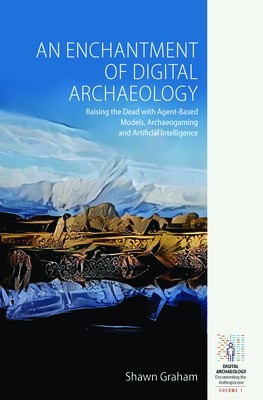
- We will send in 10–14 business days.
- Author: Shawn Graham
- Publisher: Berghahn Books
- ISBN-10: 1789208718
- ISBN-13: 9781789208719
- Format: 15.2 x 22.9 x 1.1 cm, minkšti viršeliai
- Language: English
- SAVE -10% with code: EXTRA
Reviews
Description
The use of computation in archaeology is a kind of magic, a way of heightening the archaeological imagination. Agent-based modelling allows archaeologists to test the 'just-so' stories they tell about the past. It requires a formalization of the story so that it can be represented as a simulation; researchers are then able to explore the unintended consequences or emergent outcomes of stories about the past. Agent-based models are one end of a spectrum that, at the opposite side, ends with video games. This volume explores this spectrum in the context of Roman archaeology, addressing the strengths, weaknesses, and opportunities of a formalized approach to computation and archaeogaming.
EXTRA 10 % discount with code: EXTRA
The promotion ends in 21d.16:00:42
The discount code is valid when purchasing from 10 €. Discounts do not stack.
- Author: Shawn Graham
- Publisher: Berghahn Books
- ISBN-10: 1789208718
- ISBN-13: 9781789208719
- Format: 15.2 x 22.9 x 1.1 cm, minkšti viršeliai
- Language: English English
The use of computation in archaeology is a kind of magic, a way of heightening the archaeological imagination. Agent-based modelling allows archaeologists to test the 'just-so' stories they tell about the past. It requires a formalization of the story so that it can be represented as a simulation; researchers are then able to explore the unintended consequences or emergent outcomes of stories about the past. Agent-based models are one end of a spectrum that, at the opposite side, ends with video games. This volume explores this spectrum in the context of Roman archaeology, addressing the strengths, weaknesses, and opportunities of a formalized approach to computation and archaeogaming.


Reviews